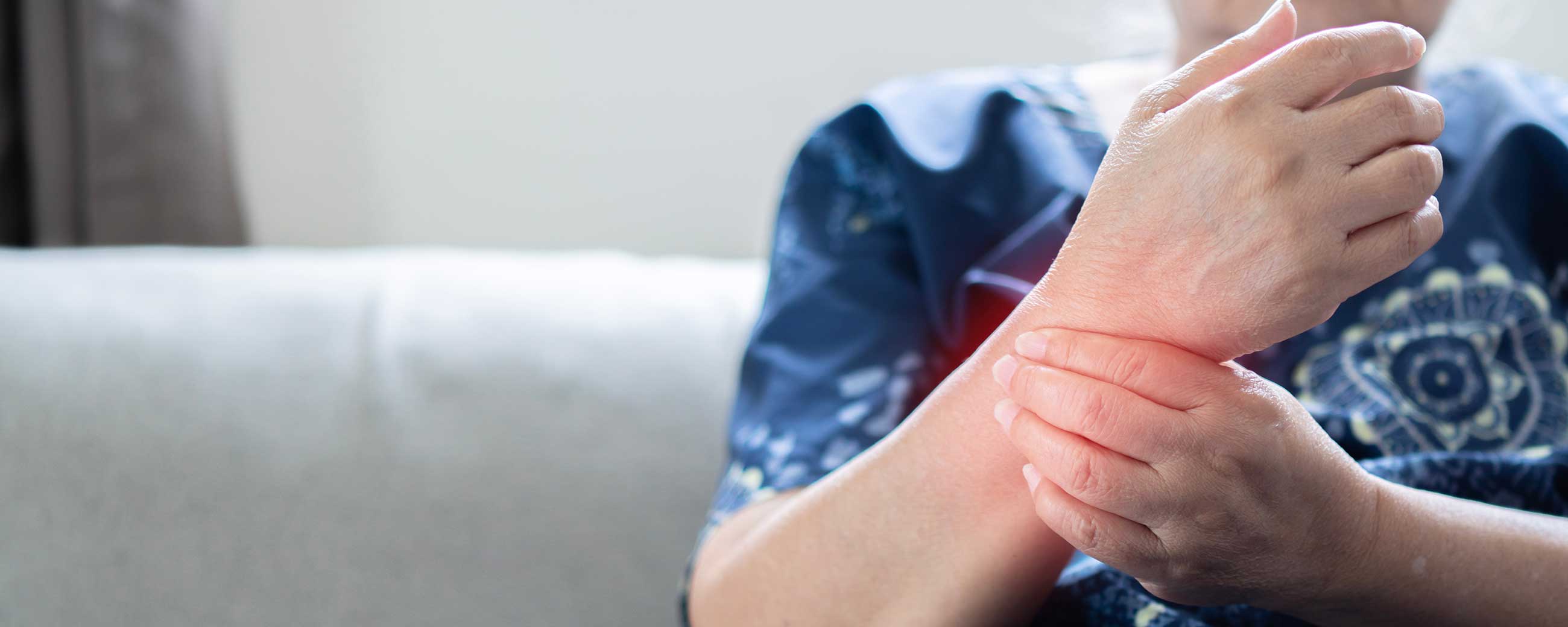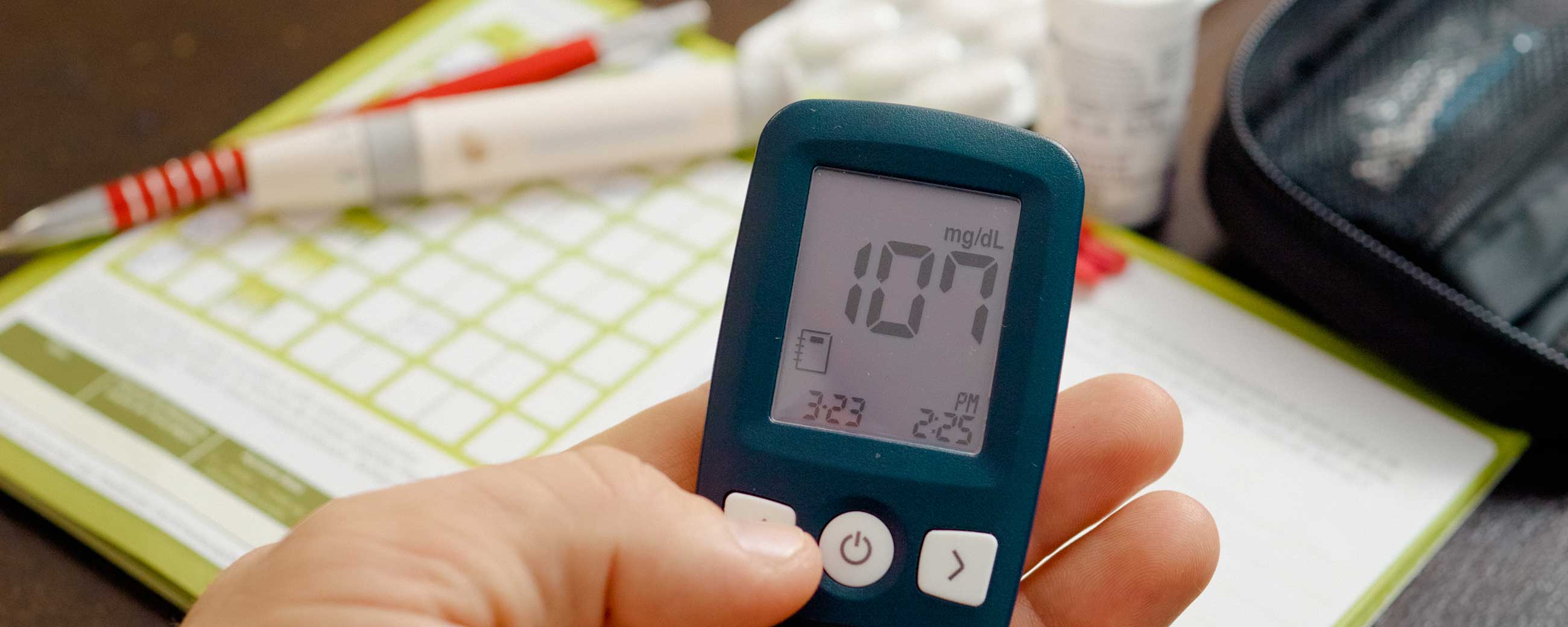
Is Waking Up With Numb Hands a Sign of Diabetes?

Waking up with numb hands can be an unsettling experience, especially if it happens often. While the cause is often something simple like sleeping in an awkward position or nerve compression, it can sometimes signal an underlying health issue. One possible connection that raises concern is diabetes, which is known to affect nerve health over time. Understanding when waking up with numb hands is harmless and when it could point to diabetic nerve damage is an important step toward identifying the root cause and protecting long-term health.
Why Your Hands Might Go Numb While You Sleep
There are a number of reasons you might be waking up with numb hands. Many reasons are benign and just a byproduct of anatomy or sleeping position, but others may be cause for concern.
Diabetic neuropathy
Diabetic neuropathy is nerve damage caused by chronic high blood sugar and other metabolic changes in people with both type 1 and type 2 Diabetes. While often discussed in relation to numbness in the feet or legs, diabetic neuropathy can also cause numbness in other extremities, including your hands and fingers.
Poor circulation
Waking up with numb hands can sometimes be linked to poor circulation, which reduces blood flow and oxygen delivery to the nerves and tissues in your hands. When circulation is compromised - either from a temporary blockage due to sleeping position or from an underlying vascular condition - the result can be tingling, numbness, or a “pins and needles” sensation when you wake up.
Awkward sleeping positions
The most common reason you might be waking up with numb hands has to do with an awkward sleeping position. Lying on your arm, wrist, or hand can compress blood vessels and restrict blood flow, leading to temporary numbness that goes away once you wake up or change positions
Carpal tunnel syndrome
Waking up with numb hands can be a common symptom of carpal tunnel syndrome, a condition caused by compression of the median nerve as it passes through your wrist. This nerve controls sensation and movement in the thumb, index, middle, and part of the ring finger. When it’s compressed, these areas can feel numb, tingly, or “asleep,” especially at night or when first waking up.
Other conditions
Other conditions can also lead to numb hands while sleeping. They vary greatly and can be as simple as a vitamin deficiency, arthritis, medication side effects, or a pinched nerve in your neck. Others can be more severe and include things like alcohol abuse, autoimmune issues, or thyroid disorders. Bottom line: if you’re waking up with numb hands frequently it’s best to have a conversation with your health care provider.
How Diabetes Causes Numb Hands
Nerve Damage
When blood glucose stays high over time, it can lead to chemical and structural changes in the small blood vessels that supply nerves. Over time, these vessels can become narrowed and less efficient. At the same time, high sugar levels inside nerve cells can cause oxidative stress, inflammation, and the buildup of toxic byproducts. Together, these processes can damage nerves and slow down their ability to transmit signals, leading to numbness. This is called diabetic neuropathy.
Progressive symptoms
Diabetic neuropathy usually starts in the longest nerves first (those reaching the feet). Over time, it may progress upward and eventually affect the hands, leading to waking up with numb hands, tingling, or burning pain.
How Diabetic Neuropathy affects the hands
Although diabetic neuropathy typically starts in the feet, it can eventually involve the hands if the nerve damage advances. The same nerve injury affecting leg nerves can also impact those in the upper limbs. Additionally, people with diabetes can be more prone to secondary nerve and numbness issues, which can amplify or mimic numbness in the hands.
Early warning signs of diabetic neuropathy
If diabetic neuropathy is beginning to affect the hands, the symptoms you might notice (often more noticeable at night or upon waking) may include:
- Intermittent numbness or tingling (“pins and needles”)
- You may notice this if you wake up with numb hands, especially in the fingertips.
- It often resolves after you move your hands, shake them out, or start your day.
- Subtle loss of touch sensitivity
- Buttons, coins, or small objects might feel slightly “off” in your grip.
- You might drop things more often or feel clumsy handling small items.
- Mild burning or prickling sensations
- Early neuropathy sometimes feels like a light “electric” or “buzzing” sensation, especially when the nerves are compressed overnight.
- Early neuropathy sometimes feels like a light “electric” or “buzzing” sensation, especially when the nerves are compressed overnight.
- Waking up with both hands tingling
- Neuropathy often affects nerves symmetrically. If both hands (or both feet and hands) feel numb in the morning, this can be an early systemic clue.
- Neuropathy often affects nerves symmetrically. If both hands (or both feet and hands) feel numb in the morning, this can be an early systemic clue.
- No clear positional cause
- If hand numbness happens regardless of sleep position, or even after a good night’s rest, it may point more toward nerve dysfunction than simple compression.
These symptoms can have many causes, so their presence doesn’t confirm diabetic neuropathy on its own. If you are concerned you may have diabetic neuropathy it is best to contact your provider.
What can you do if you’re waking up with numb hands?
- See a Doctor: If you’re frequently waking up with numb hands, it's important to see a healthcare provider, especially if it’s happening in both hands or alongside tingling, weakness, or pain. A doctor can help determine whether the cause is something temporary or a sign of an underlying condition
- Manage blood sugar: If you have diabetes or prediabetes, keeping your blood sugar levels in a healthy range is one of the most effective ways to prevent or slow nerve damage. Chronically high glucose can injure small blood vessels and nerves.
- Quitting smoking: Smoking can narrow blood vessels and reduce oxygen delivery to your nerves, making existing numbness worse and increasing the risk of neuropathy. Nicotine can also interfere with circulation and nerve repair.
- Exercise: Regular physical activity can support nerve health and improve circulation, which can help reduce numbness and tingling. Exercise can also help regulate blood sugar levels, strengthen muscles, and maintain joint flexibility–all of which can relieve nerve compression in the wrists, arms, and neck.
The Takeaway
Waking up with numb hands can be caused by a range of factors. Diabetic neuropathy, poor circulation, carpal tunnel syndrome, and other conditions can all contribute to hand numbness. If you experience frequent numbness, it’s important to see a doctor, manage blood sugar, avoid smoking, and maintain regular exercise to support nerve and circulatory health.
If you want to lose weight and live a healthier lifestyle, Virta Health may be able to help. By making healthy lifestyle changes in a medical setting with supportive resources like 1:1 virtual coaching, you can regain control of your health and feel like yourself again. See if you’re eligible for Virta Health here.
This blog is intended for informational purposes only and is not meant to be a substitute for professional medical advice, diagnosis, or treatment. Always seek the advice of your physician or other qualified health provider with any questions you may have regarding a medical condition or any advice relating to your health. View full disclaimer
Are you living with type 2 diabetes, prediabetes, or unwanted weight?








